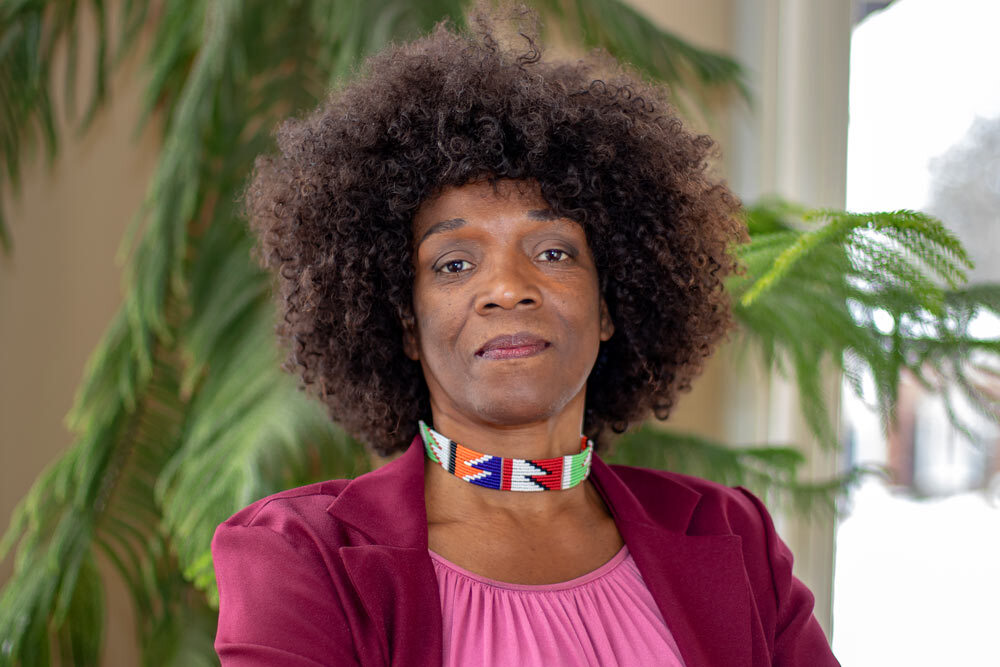Before she headed to the Boar’s Head Resort for the conference, which is funded by the National Science Foundation and supported by the College and Graduate School of Arts & Sciences and the Office of the Vice President for Research, Fraser talked with UVA Today about the benefits of addressing the times when things went off the rails.
Q. Most scientists don’t go out of their way to publicize their failures. So why are you encouraging researchers, especially women, to be more open about the times something flopped?
A. Well, some scientists are famous for calling out their failures. For example, Thomas Edison is quoted as saying, “I have not failed. I have just found 10,000 ways that won’t work.” In classic inventor mode, his approach was to reengineer the concept of failure.
Most scientists and engineers learn early that failing goes alongside any attempt to understand how things work and why. The more advanced and complex the science, the more likely that there will be many experiences of failure. Failure is a necessary and frequent feature of scientific research.
The problem is that we live in a society where failure is seen as always negative, something that reflects poorly on us. No one wants to have their scientific or engineering competence questioned and so researchers might avoid talking openly about failure. It can seem that only success is rewarded. Failure is often sanctioned.
We are not asking individual women researchers to be more open in disclosing failure. To do so in organizations that are flop-averse would not be good advice. Our long-term goal is to create greater opportunities in universities for STEM researchers to talk about failure as a routine aspect of scientific learning and discovery. Normalizing failure, creating more transparency about how important it is to fail and how to respond to failure is what I would encourage universities to integrate into organizational culture.
Q. Some women scientists say they must work harder than their male counterparts to be recognized as leaders and experts. Does that make it more difficult for women to publicly recount their failures?
A. One difficulty women faculty in STEM describe is related to the “prove it again” phenomenon. They are often expected to prove their competency as engineers or scientists well above and beyond the normal benchmarks, and for much longer in their careers. In this type of work environment, where one’s competency is always being questioned, then it may be prudent to lead with success and downplay failures in interactions with peers or supervisors.
Q. How should universities like UVA support scientists who set out to do something important, but fail?
A. Organizations that do failure well invest in building expertise in failure analysis in complex systems. Not all failures are the same and it is valuable to accumulate knowledge from different types of failure to make good decisions about next steps or solutions.
Recognizing someone who set out to do something important and failed means not blaming or shaming, focusing instead on what failed and why. This kind of approach developed for business may need to be adapted to fit university research settings, but it does suggest avenues for experimentation in approaching failure in new, generative ways.
Q. As we saw in the pandemic, some members of the public equate scientific failure with incompetence. How could scientists better communicate that missteps are part of the process?
A. When the relatively new virus appeared, it did seem that the scientific experts often shifted their recommendations about best ways to secure public health and to assess COVID-19’s virulence. Usually, the immediate response to a new phenomenon takes place under controlled conditions. But here scientists were out in the open actively studying and making sense of the virus, while also responding to public demand for accuracy and expertise.
It was easy to see this changing advice as a measure of scientific incompetence. But in many ways, this was science as usual – moving from what was known to the unknown – but under unusual circumstances. Public scientific literacy should include more communication that failure and trial and error are intrinsic parts of the scientific process.
Q. How should faculty members at UVA and at other universities model the kinds of behavior to students that failing at something is not the end of the world?
A. There are emerging models in universities of showcasing failures and resilience through failure. Massachusetts Institute of Technology and Harvard University, for example, organized “FAIL!” events where senior scholars exposed their own mistakes, false starts and wrong turns in personal, academic and professional life. The goal was not so much to boast about their unusual endurance, but to humanize the ordinariness of failure and reflect on emotional and cognitive pathways to living with and moving beyond the “failure” experience.
At the University of Virginia, Kenneth Ono, STEM adviser to the provost and Marvin Rosenblum Professor of Mathematics, hosts “Story Collider” events to full audiences of faculty, staff and students. UVA faculty scientists, engineers and medical researchers share their failure stories and in so doing communicate powerfully to the students about the scientific process with all its uncertainties, alongside breakthroughs and triumphs.
Caitlin Wylie of the School of Engineering and Applied Science conducted fieldwork and I conducted interviews with senior female STEM faculty. We found failure disclosure improved students’ sense of belonging, that they too could persevere and attain their goals to be employed in STEM fields and become a part of the scientific community. Being open about failure to trainees was highly valued as a mark of a good teacher and mentor.


.jpg)








